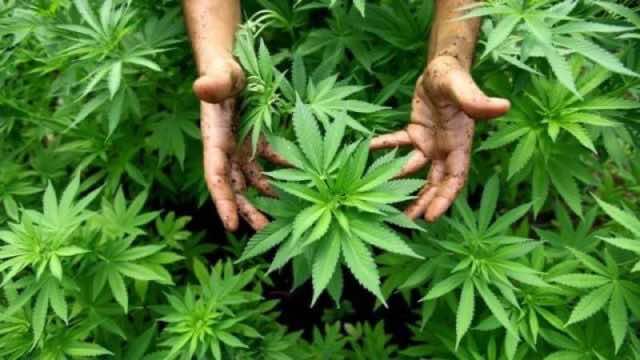(MENAFN- Morocco World News)  By Maria Kuiper
By Maria Kuiper
Rabat – Lebanon's suffering economy and abundance of illegal cannabis farmers have led the Lebanese government to look into the legalization of cannabis.
McKinsey & Company, an international consultant firm, has come up with the plan for Lebanon to legalize cannabis to save their weak economy. Since the start of the Syrian war, the has estimated around one million documented Syrian refugees living in Lebanon.
Riad Salameh, the governor of the Central Bank of Lebanon, said in 2015 that and indirectly cost $3.5 billion a year.
The Guardian that economic growth dropped from nine percent to two percent since the Syrian war has occurred.
One of the reasons people in Lebanon are so poor is because of arrest warrants relating to the drug trade. According to the Guardian, about 42,000 arrest warrants for marijuana offences are outstanding in the Baalbek-Hermel district. When people have arrest warrants out, they will not be able to find a job.
Cannabis production in Lebanon is ruled by clans in the Bekaa valley. The wealth and power they have established is due to the years of the drug trade. They are heavily armed and will question authorities.
The climax of Lebanon's cannabis industry was during the Lebanese civil war from 1975 to 1990, when around 2,000 tonnes of cannabis was illegally transported a year.
Now, Lebanon brings an estimated $175 million to $200 million to the country by exporting to the Gulf, Europe, Africa, and North America. However, Lebanon is only the third largest exporter of cannabis in the world, . Morocco remains the main source for cannabis resin in the world.
Moroccan law bans the sale and consumption of cannabis, but farmers continue to grow the plant, and tourists continue to visit Morocco in hopes of trying hashish. , cannabis provided a living for around 90,000 households in 2013.
Morocco tourism and hashish have been hand-in-hand since the 1960s during the hippie movement. Chefchaouen, the famous 'Blue Pearl', has been popularized as being the main center of cannabis production in the region.
reports that cannabis is the 'most widely cultivated, produced, trafficked, and consumed drug worldwide' although still illegal in most countries. If Lebanon legalizes cannabis for medical purposes, there would be more access and treatments for people who experience chronic pain, muscle spasms, seizures, anxiety, nausea, vomiting, and even multiple sclerosis and cancer.
MENAFN2307201801600000ID1097188092
Legal Disclaimer:
MENAFN provides the information “as is” without warranty of any kind. We do not accept any responsibility or liability for the accuracy, content, images, videos, licenses, completeness, legality, or reliability of the information contained in this article. If you have any complaints or copyright issues related to this article, kindly contact the provider above.